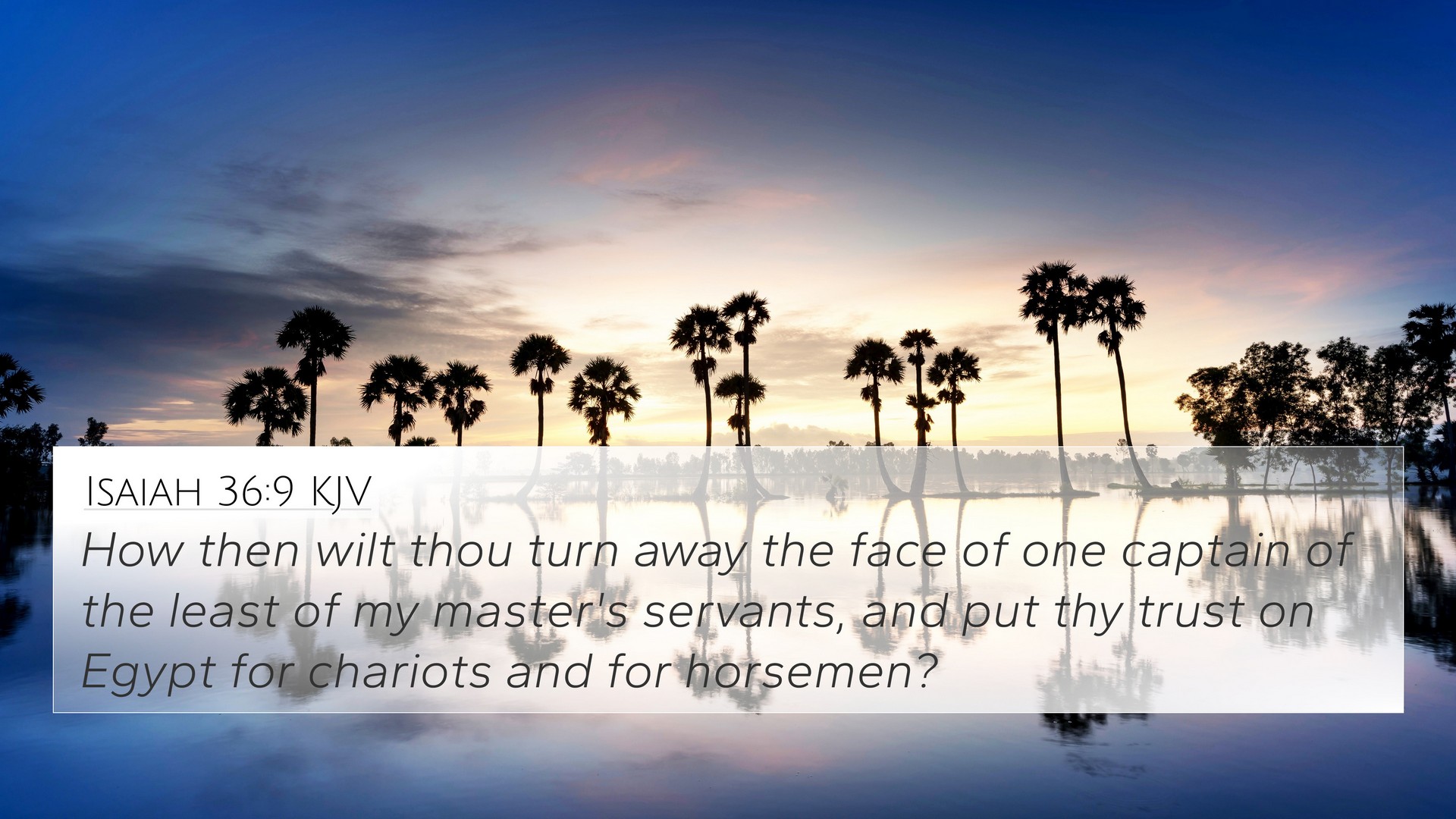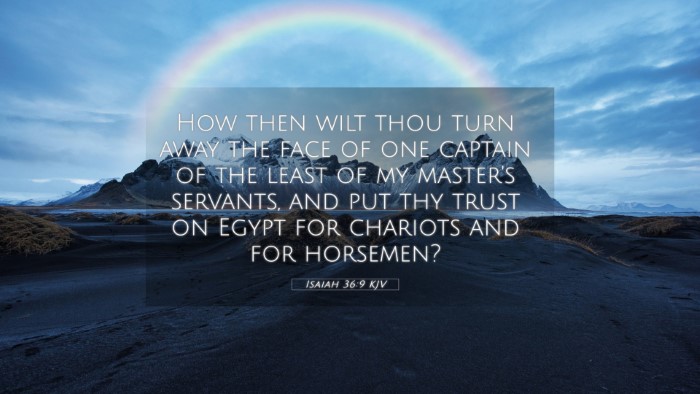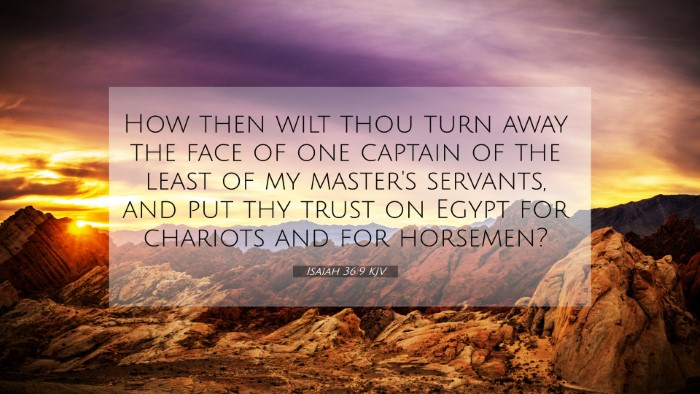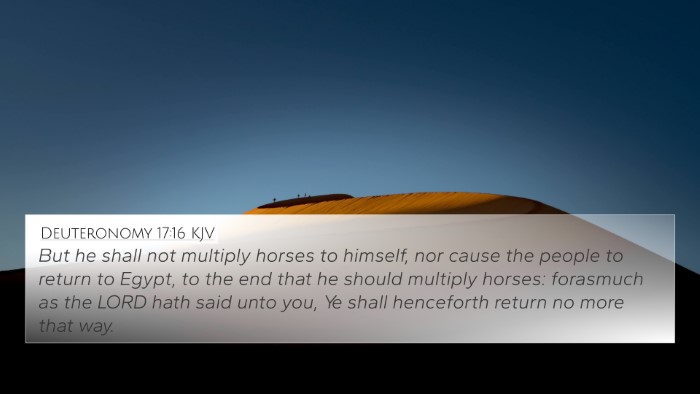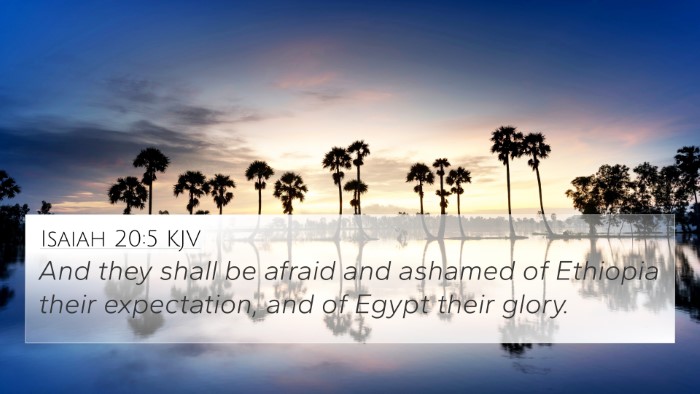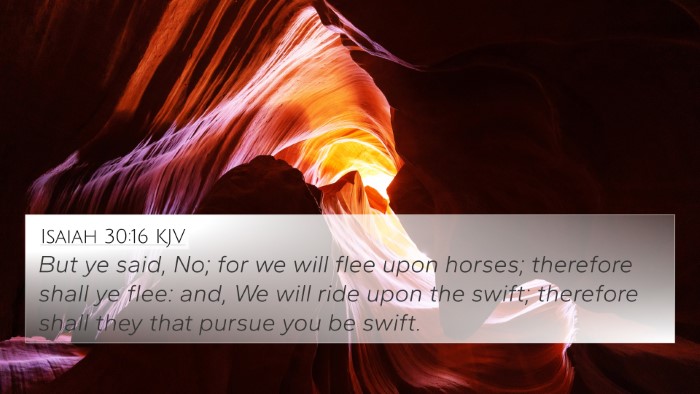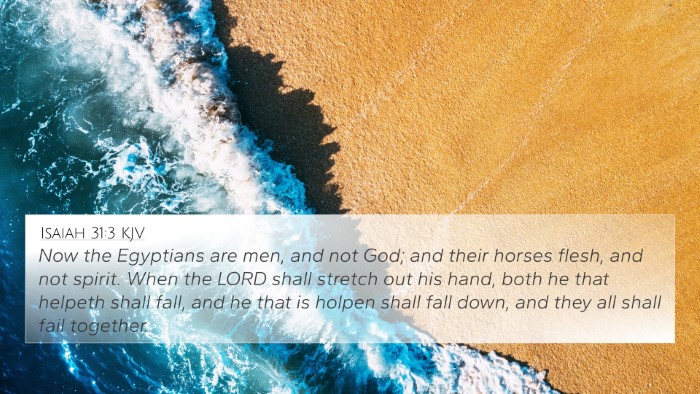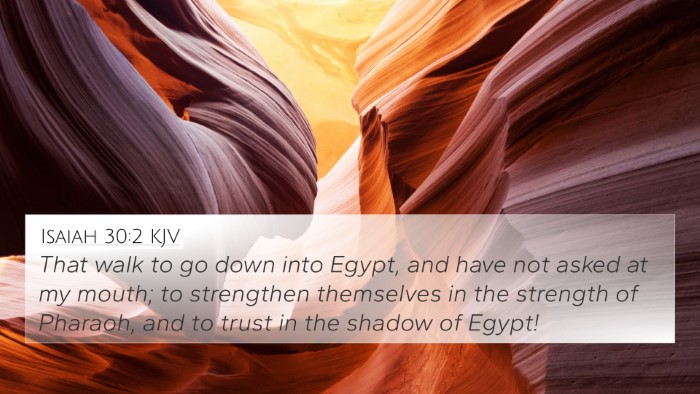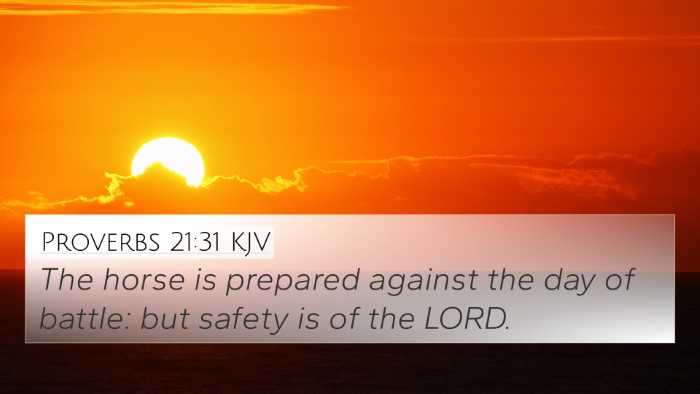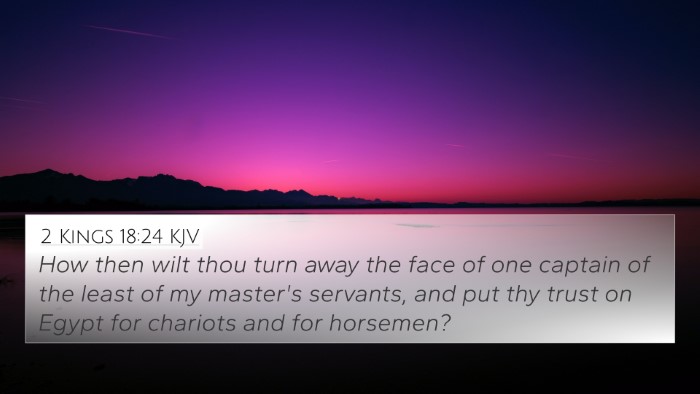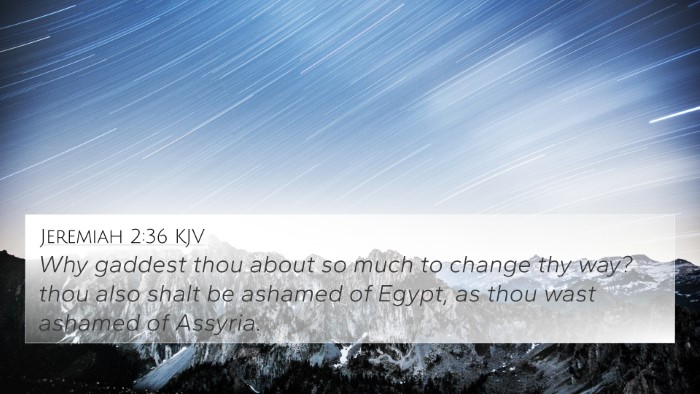Understanding Isaiah 36:9
Isaiah 36:9 presents a significant moment in the narrative of the impending Assyrian threat against Jerusalem. The verse reads:
"How then will you repulse a single captain among the least of my master’s servants and put your trust in Egypt for chariots and for horsemen?"
Contextual Overview
This verse emerges from a larger scene where the Assyrian envoy, Rabshakeh, is taunting the people of Jerusalem. His rhetoric aims to undermine their confidence in reliance upon Egypt as an ally and encourages them to surrender. The verse fits within the broader themes of trust, power, and the folly of reliance on human strength as opposed to divine help.
Interpretative Insights
- Matthew Henry: Henry emphasizes the audacity of the Assyrian king's emissary who belittles the military capabilities of Judah. He draws a parallels to the futility of trusting in worldly allies and systems in times of crisis.
- Albert Barnes: Barnes speaks to the Assyrian's scorn for Judah's reliance on Egypt, illustrating the broader message of placing faith in the Lord rather than in princes or potentates. He reasons that this verse serves as a reminder that true power is not in military alliances but in God's sovereignty.
- Adam Clarke: Clarke discusses the historical context of this exchange and highlights the necessity of recognizing the divine source of strength. He notes that the doubts sown by Rabshakeh reflect a spiritual battle alongside the physical one.
Thematic Bible Verse Connections
This verse connects with several themes within scripture, reinforcing critical aspects of faith, reliance on God, and the consequences of distrust:
- Trust in God: Psalm 20:7 - "Some trust in chariots and some in horses, but we trust in the name of the Lord our God." This verse offers a counter to Rabshakeh's challenge by affirming faith in divine strength.
- Folly of Alliances: Isaiah 30:3 - "Therefore shall the strength of Pharaoh be your shame, and the trust in the shadow of Egypt your confusion." This verse warns against reliance on Egypt, echoing the sentiment in Isaiah 36:9.
- Divine Protection: Proverbs 21:31 - "The horse is prepared for the day of battle, but deliverance is of the Lord." Emphasizing the true source of victory.
- God’s Sovereignty: Isaiah 41:10 - "Fear not, for I am with you; be not dismayed, for I am your God; I will strengthen you, I will help you." A promise that resonates with the context of fear in Isaiah 36:9.
- Human Power vs. Divine Power: 2 Corinthians 10:3-5 - "For though we walk in the flesh, we do not war according to the flesh." This highlights the spiritual nature of the struggle.
- Reassurance in Times of Trouble: Psalm 46:1 - "God is our refuge and strength, a very present help in trouble." An encouraging reminder during spiritual assaults.
- Faith in Uncertain Situations: Hebrews 13:6 - "So we can confidently say, 'The Lord is my helper; I will not fear; what can man do to me?'" This reassures believers amidst threats.
Cross-Referencing Biblical Texts
Cross-referencing Bible verses such as Isaiah 36:9 reveals a web of connections that provide clarity and insight into larger scriptural themes. Below is a list of relevant cross-references:
- Isaiah 31:1 - "Woe to those who go down to Egypt for help..."
- 2 Kings 18:19-20 - "And the Rabshakeh said to them..."
- Jeremiah 17:5 - "Cursed is the man who trusts in man..."
- Luke 18:7 - "And will not God give justice to his elect?"
- Isaiah 37:10 - "Thus shall you speak to Hezekiah king of Judah..."
Practical Applications
When interpreting this verse, it provides both a historical reminder and a personal challenge:
- Evaluate Trust: Assess where you place your trust during times of crisis. Are you looking to God or relying on your own understanding?
- Understand Context: In-depth study using tools for Bible cross-referencing can yield rich insights into how these ancient narratives inform modern faith.
- Developing Faith: Use this passage as a launching point for deeper prayer and reflection on divine support in your life.
